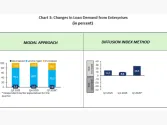Successful real asset investing in Hong Kong
By Ganesh IyerShifting from financial assets to real assets? Are you already part of this rising trend or looking to get started?
As China's population becomes wealthier and disposable incomes rise, the demand for real assets continues to grow whether it is in real estate, infrastructure, intellectual property, or commodities. In this context, the role of Hong Kong as the entrepôt to China is unmatched.
Hong Kong's easy access to the Chinese market, abundant pool of talent, and business-friendly environment are enticing institutional investors and alternative fund managers to accelerate investing in real assets by taking advantage of the city's superior trading infrastructure.
However, successfully investing in real assets and managing associated risks require reliable connectivity throughout the trade lifecycle and across asset classes. Also critical is the ability to rapidly access a ready-made ecosystem of liquidity venues, counterparties, brokers/dealers, trade lifecycle services, and market data.
Let's explore this concept by taking commodities investing as an example and assessing the role of connectivity and ecosystems. Hong Kong is the commodities trading center connecting China to the rest of the world. The growing presence of the London Metal Exchange in Asia – which was acquired by Hong Kong Exchanges and Clearing – is further testament to Hong Kong's growing influence as a hub of commodity trading in the region.
If the Shanghai-Hong Kong Stock Connect and Shanghai-Hong Kong Gold Connect are replicated for trading commodities between Hong Kong and various venues in China such as the Dalian Commodity Exchange, Zhengzhou Commodity Exchange, and Shanghai Futures Exchange, it will further cement Hong Kong's position as the gateway for international investors into China.
From an investor's perspective, commodities, like other real assets, serve as a hedge against inflation and provide much needed diversification to traditional equity and fixed income portfolios. Commodity investors do, however, face exchange rate and interest rate risk. For example, the recent appreciation of the US dollar has caused a decrease in dollar-denominated commodity prices.
Similarly, there is an inverse relationship between interest rates and commodity prices. Investors are likely to switch from commodities to fixed income securities in a high interest rate environment. The most common types of commodities include agricultural products, livestock, energy and metals – both industrial and precious.
Commodity investments are usually made through derivatives contracts such as futures, forwards, swaps, or options since holding physical commodities is an expensive proposition. Investors can also gain exposure to commodities through commodity-based equities, bonds issued by firms selling commodities, commodity-based mutual funds, or exchange-traded products.
Given these dynamics, an investor in commodities has to take a holistic view across multiple asset classes. As commodity exposure can be obtained through a range of products such as derivatives, commodity-based equities, and bonds issued by firms selling commodities, investors need to be able to reliably access equities, fixed income, listed derivatives, and OTC derivatives liquidity venues.
They also need to access a global community of FX venues including single bank platforms, multi-bank dealing platforms, and electronic broking systems to hedge the exchange rate risk associated with investing in commodities.
Risk management for commodity portfolios is another area that is highly dependent on connectivity and ecosystems as they are invaluable for:
1. Accessing a range of independent and accurate market data sources to correctly calculate net asset values and assess risk.
2. Reaching a global community of liquidity venues to reduce the market impact costs of liquidating large, concentrated positions.
3. Collaborating among various groups within a trading firm to record, confirm, and reconcile trades.
4. Connecting to a variety of trade lifecycle services, including risk management, portfolio management, execution management, and order management systems, to enforce position and risk limits.
The principles discussed here are not limited to commodities investing. They also apply to real estate, infrastructure, intellectual property, and any other real asset. Having the right technology and processes in place is the way for investment firms to get ahead in Hong Kong.




















 Advertise
Advertise







